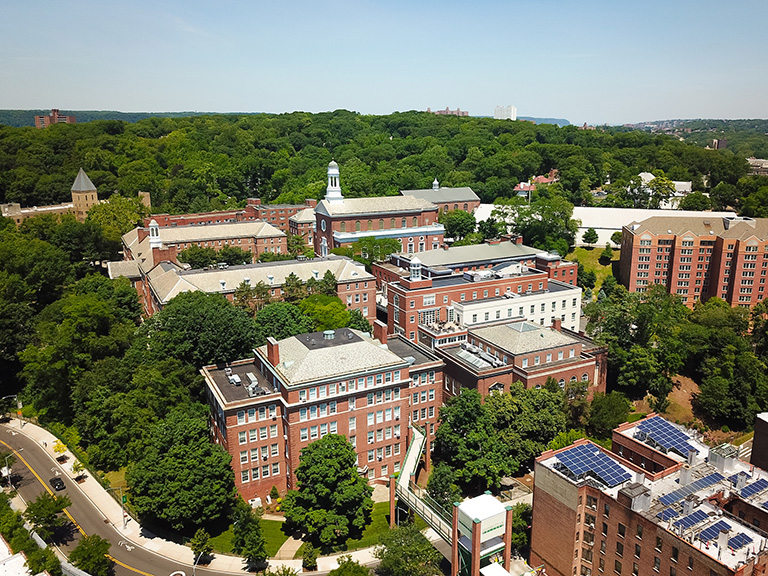 Manhattan College students can now minor in geography, under the department of sociology within the School of Liberal Arts.
Manhattan College students can now minor in geography, under the department of sociology within the School of Liberal Arts.
“A lot of times people think of geography as maps, and that’s all they think of,” said Robin Lovell, Ph.D., assistant professor of geography at Manhattan College. “There’s a critical and social awareness, social responsibility aspect to human geography. Human geography skills are about being critical of power dynamics in our society and how those result in spatial differences in our time.”
Students in Lovell’s geography classes are currently studying the link between geography and the ongoing COVID-19 pandemic.
“What’s interesting to me is the spread from where [COVID-19] originated into different parts of the world,” Lovell explained. “That process is going to be interesting in terms of data, the issues of class and money, and which governments are putting money into which types of mitigation, including closing borders and how that affects the spread.”
Within the minor, students will learn how geographers think about the complex problems facing our planet: poverty, inequality, environmental degradation, climate change and more. The theoretical foundation of human geography gives students a critical lens to approach human-environment interactions.
The geography minor offers an interdisciplinary approach that helps students develop highly sought-after skills in digital tools and data-analytic methods that employers value. Courses explore the convergence between humanistic and science, technology, engineering and mathematics (STEM) approaches.
Students with a geography minor will gain skills in data analytics, digital media and computer programming. They will acquire the geographic analysis skills that are useful in a variety of research and professional positions in which spatial information analysis is required. These skills include fluency in map-reading, basic cartography and Geographic Information Systems (GIS) software.
“Regardless of whether a student is a history major or an engineering major, knowing the GIS software is a great skill to have,” Lovell said. “The GIS skills have broad applications – environmental consultants and engineers can use them. Most firms, private or public, that deal with land management, building projects or mapping of any kind use the GIS software.”